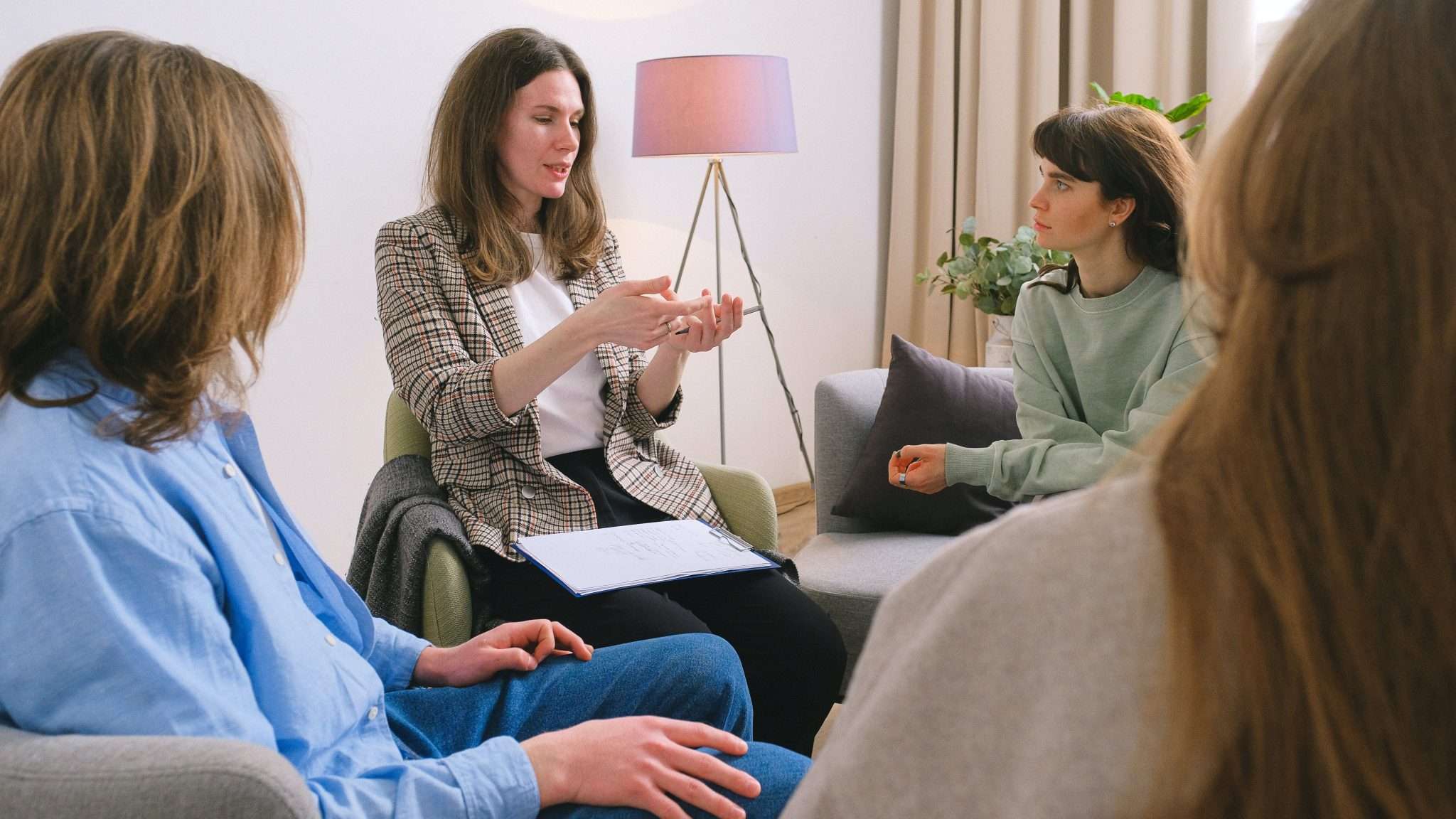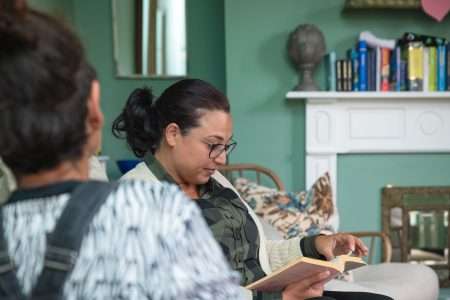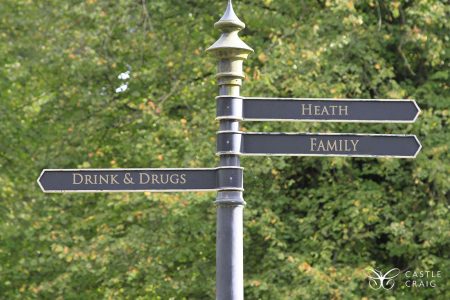Table of Contents
When leaving rehab, remember that completion of treatment does not mean completion of recovery: addiction treatment usually focuses on looking inward, towards self-improvement, and addressing the immediate issues arising through your nature and nurture. Addiction recovery, on the other hand, is primarily concerned with your successful re-integration into everyday life after rehab, covering a much broader, long-term process of rebuilding connections and relationships, and adapting to a healthier and more fulfilling lifestyle.
Two Aspects of Recovery
Establishing a successful long-term sobriety is often described as a process. Some people think addiction can be overcome simply by facing their demons, but that’s not the case. Addiction is a mental health condition with many facets requiring attention if true lasting recovery is to be achieved.
Understanding Addiction as an Attachment Disorder
Firstly, it helps to explore the psychological aspects of addiction, which leads us to attachment theory, originally developed by British psychologist John Bowlby. This focuses on the nature of emotional bonds between individuals, particularly those formed during childhood with primary caregivers. Bowlby said that early attachment experiences play a fundamental role in shaping a person’s emotional regulation, self-esteem, and coping mechanisms. When these early attachments are insecure or disrupted, this can lead to emotional vulnerabilities, low self-worth, and difficulty in forming healthy relationships.
In the context of addiction, people may turn to substances or compulsive behaviours as a way to cope with emotional distress or to fill the void left by unmet attachment needs. The substance or behaviour may temporarily alleviate emotional pain or loneliness, creating a cycle of dependency that can be difficult to break.
The view of addiction as an attachment disorder helps explain why some people are more susceptible to addiction and why approaches that solely focus on breaking physical dependency may not be sufficient.
The Attachment-based Approach Is Crucial in Early Recovery
The attachment-based approach recognises that addressing unmet attachment needs – such as a desire for comfort, security, and connection – enables people to cope much better with the challenges of early recovery. In fact, addressing such needs is not just important but essential for lasting and contented sobriety.
Recovery and Reintegration into Society
Addiction has a wide reach. Besides your own addiction, it affects families, communities, and society as a whole. The remedy is reintegration. Addiction leads to strained relationships, financial burdens, and increased healthcare costs. It can also contribute to criminal activity and a cycle of incarceration. Successful reintegration means not only helping you as a person in recovery but also mending the social fabric damaged by addiction.

Step into a Brighter Future
Obstacles to Successful Reintegration
Here are some of the challenges that you may face after leaving rehab:
- Stigma and Discrimination: people in recovery often face stigma and discrimination, which can hinder their ability to find housing, employment, and form new relationships. To overcome this, community education and advocacy efforts can be encouraged to help create a more supportive environment.
- Poor self-image and feelings of alienation: the isolation that results from chronic addiction can hinder a person’s efforts at rehabilitation. Building self-worth can take time and may require help in the form of classes or further therapy.
- Lack of Supportive Social Networks: links with friends and family due to addictive behaviour in the past may need to be rebuilt, and this can be challenging. Support groups, peer mentors, and family therapy can help people reconnect with loved ones and build new, healthier relationships.
- Financial Insecurity: addiction often leads to financial problems, making it difficult to secure stable housing, steady work and sometimes even meet basic needs. Providing access to financial counselling, vocational training, and assistance with housing can help, but may be hard to access.
- Legal Issues: A criminal record resulting from substance misuse-related activities can hinder reintegration into society. Legal support can help individuals address these issues, but again, this may be expensive and hard to find.

Strategies to Overcome Challenges on the Recovery Journey
It’s important when you leave rehab to have thought about possible challenges beforehand so as to have a plan for dealing with them when they occur, as they almost certainly will. Here are some examples:
- Have a recovery plan and follow it. Planning reintegration and developing personalised relapse prevention strategies is vital. This may involve identifying triggers, creating coping mechanisms, and knowing where to find support during moments of crisis.
- Therapeutic Support: Regular therapy, including cognitive-behavioural therapy (CBT) and dialectical behaviour therapy (DBT), can help address underlying issues that still remain after rehab treatment, such as trauma or co-occurring mental health disorders.
- Peer Support and Sponsorship: Peer support groups such as Alcoholics Anonymous (AA) and Narcotics Anonymous (NA), as well as sponsorship, offer a sense of belonging and guidance that are really important in the early days of recovery.
- Holistic Wellness: A focus on physical and mental well-being through activities such as exercise, mindfulness, and stress management can aid in recovery and overall health and contribute to positivity and a sense of purpose.
- Education and Employment Assistance: Access to education and job training programmes can provide the skills and resources needed to secure stable employment.
Overcoming Social Stigma and Rebuilding Relationships
Stigma remains one of the biggest obstacles faced by people in early recovery from addiction, with nine out of ten saying they have experienced this. Nevertheless, it can be overcome, and numerous famous people recently have led the way in talking about their addiction problems.
Expect therefore to be at the receiving end of negativity, even from people you know well and work out your best responses. You can even try this in role-play, while still in rehab. Discussing how you would support others struggling with stigma is a great way of clarifying how to help yourself. Your responses (not reactions) might include:
- Accepting: Try not to judge others and accept the reality of your addiction, but remind yourself that you are now in recovery and your worth is not defined by your past
- Supporting: Helping others in a similar situation is a great way of helping yourself. But be sure you have your own support network up and running too – family, friends and fellowships.
- Establishing Boundaries: Clear boundaries with people displaying negativity are important, showing what is acceptable and what is not. It may be necessary to avoid certain people, especially in the early months of recovery, if not altogether.
- Being Patient: Don’t expect too much too soon. Perceptions take time to change, and some people may want to see your continued commitment.
- Projecting a Positive Image: Believe in yourself, and others will believe in you. Become an advocate for recovery, and when you feel ready, perhaps give talks about your experiences in schools or other community venues. Self-expression through art or writing is another great way of helping people to understand and empathise with your situation.

Gateways for Reintegration Back Into Society After Rehab
Choosing your best path for reattaching yourself to your local community depends partly on your personal preferences and interests. Embracing recovery and the new life it offers means the chance to try new things, so keep an open mind and challenge your old attitudes. After all, if you want others to change their preconceptions about you, then you should be prepared to do the same. Here are some suggestions. You may not fancy some of them, but you will certainly need some of them, so why not try them all?
- Volunteering: this allows you to give back something to your community and become known (good for self-esteem). You build a sense of purpose and connect with like-minded people. You can volunteer at local charities, community organisations, or causes that are meaningful to you.
- Religious or Spiritual Communities: the great majority of religious organisations are welcoming, supportive and non-judgmental, and few demand a profession of faith before giving help. They are often venues for a range of activities such as cafes and book clubs, apart from their religious services.
- Support Groups: self-help groups for your particular addiction recovery needs are immensely helpful. Examples include Alcoholics Anonymous (AA), Narcotics Anonymous (NA), SMART Recovery, and other peer-led support groups. These groups offer a great sense of community and understanding and their importance can’t be overemphasised..
- Social Clubs: Engaging in social clubs or hobby-based groups that align with your interests can help you establish new friendships and relationships. Consider clubs related to sports, art, music, hiking, or any other activity you enjoy.
- Education and Skill Building: Pursuing further education or skill-building courses can not only enhance your knowledge but also provide opportunities to meet people who share similar aspirations. Community colleges, adult education centres, or online courses are viable options.
- Employment: Re-entering the workforce is a significant step in the reintegration process. Job finding isn’t easy, but starting as a volunteer or part-time can lead to something more permanent.
- Reconnect with Family and Friends: Rebuilding relationships with family members and friends who are supportive and understanding is essential. Engage in family therapy if necessary to facilitate communication and understanding.
- Civic Engagement: Participate in local community events, town meetings, or neighbourhood initiatives. These activities allow you to connect with neighbours and become actively involved in your community.
- Recreational Activities: sports leagues, hiking groups, or fitness classes can help you rebuild a healthy and active lifestyle while making new friends.
- Online Recovery Communities: Explore online recovery communities and forums. While they’re not a substitute for in-person connections, they can be a valuable resource for sharing experiences and seeking advice.
Free Confidential Addiction Assessment
Taking the first step towards seeking help can be very difficult, our team is here to help you.
Make Re-attachment a Specific Goal
Reattachment to society after the isolation of addiction must be seen as a specific goal of recovery, not just a pious hope. It may take time, but as you go through the process, you will start to experience the growing contentment that comes from a sense of belonging, a sense of doing your best and a sense of purpose.
At Castle Craig Hospital, we place great emphasis on reintegration, and everyone leaving treatment has a Continuing Care Plan detailing how this return to everyday living will be achieved. We encourage you to join a local self-help fellowship such as AA and to find a sponsor – an experienced guide and advisor to whom you can turn for support and advice.
Our team of professionals – medical, therapeutic and support staff- are all here to help you. If you are worried about any aspects of addiction for you or someone close to you, don’t hesitate to call us. We will treat your call with complete confidence.
Telephone 01721 546 263, our lines are open 24/7.
-
References
-
- https://www.simplypsychology.org/bowlby.html
-
- https://www.ncbi.nlm.nih.gov/pmc/articles/PMC3725219/
-
Experts You Can Trust
With a wealth of knowledge and services to help you regain control of your life, request a call-back from one of our professionals today. The choice you make today could change your life forever.



